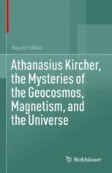Search
Search Results
-
Editing the Sumerians, How and Why?
The science of pedagogy in Babylonia in the early second millennium BCE was based on a two-part curriculum: students began their study of Sumerian by...
-
The Asiatic Society, the Bibliotheca Indica and Devanāgarī Printing in Bengal: The Historical Context of the Editio Princeps of the Nyāyabhāṣya
The editio princeps of the Nyāyabhāsya of Vātsyāyana Pākṣilasvāmin (ca. fifth century CE) was published by the Asiatic Society of Bengal in 1864–1865...
-
Before the Library of Babel: On Some Very Early Philologers
Writing began in ancient Mesopotamia more than five and a half thousand years ago. From the beginning, scribes, and teachers, alone and in groups,...
-
Postface
The relationship between science and philology is far more complex, and far more interesting, than would be suggested by the popular imagination of a...
-
THE LATIN MIDDLE AGES
The “Latin Middle Ages”, as here understood, comprise what was left over from the Western Roman Empire at its collapse, and those areas that were...
-
THE 19th CENTURY
Modern coherent disciplines like physics or linguistics were born in the earlier 19th century, as was the idea of science as systematic, ever-ongoing...
-
THE ISLAMIC MIDDLE AGES
Ten years after Muḥammad’s death in 632, Arabic warriors kept together by the new creed he had established had conquered Egypt, Syria (both from the...
-
Conclusion
Kircher’s three books which have been presented and commented concern his cosmological geocentric vision of the world from the interior of the Earth...
-
Controlling Nature in the Lab and Beyond: Methodological Predicaments in Nineteenth-Century Botany
Botany changed dramatically in the nineteenth century, particularly in German-speaking countries, and an important part of this change was the...
-
One Myrtle Proves Nothing: Repeated Comparative Experiments and the Growing Awareness of the Difficulty of Conducting Conclusive Experiments
This chapter focuses on physicists from across Europe who, between the mid-1740s and the mid-1780s, investigated whether electricity promoted plant...
-
From the Determination of the Ohm to the Discovery of Argon: Lord Rayleigh’s Strategies of Experimental Control
Theory and experiment went hand in hand in the work of Lord Rayleigh, in which the quest for rigor was a ubiquitous theme. To Rayleigh’s mind,...
-
Controlling the Unobservable: Experimental Strategies and Hypotheses in Discovering the Causal Origin of Brownian Movement
This chapter focuses on the experimental practices and reasoning strategies employed in nineteenth century investigations on the causal origin of the...
-
Christoph Scheiner’s The Eye, that is, The Foundation of Optics (1619): The Role of Contrived Experience at the Intersection of Psychology and Mathematics
Accounts of the development of experimental methods (including controls, broadly understood) in the seventeenth century have tended to overlook...
-
Controlling Animals: Carl von Heß, Karl von Frisch, and the Study of Color Vision in Fish
In the 1910s, physiologist Carl von Heß and zoologist Karl von Frisch studied color vision in fish. In what follows, I first show what types of...
-
Introduction: Practices, Strategies, and Methodologies of Experimental Control in Historical Perspective
The introduction distinguishes four distinct strands in the history of experimental control. The first is the historical development of control...
-
Progress of the Human Spirit
In the Renaissance context, a cyclical conception of the history of knowledge prevailed, according to which knowledge in the past had undergone...
-
Chapter Six: Niccolò Tartaglia and the Science of Weights
Niccolò Tartaglia (b. 1499/1500) adopted the Aristotelian Mechanical Problems as his model and attempted to found its treatment of the balance on the...
-
Chapter One: Devices and Desires
In Greek antiquity a machine was any marvellous device or stratagem that worked against nature to accomplish some human purpose or to satisfy some...
-
Chapter Five: The Recovery of Ancient Mechanics
Beginning in the mid-fifteenth century, Italian humanists recovered and printed the Greek texts of the Aristotelian Mechanical Problems and Pappus of...
-
Chapter Two: Archimedes Mechanicus
Archimedes of Syracuse (ca. 287–212 B.C.) was, by reputation at least, the most accomplished mechanic of antiquity. He was also perhaps the first to...
